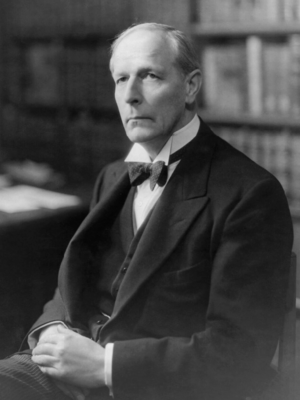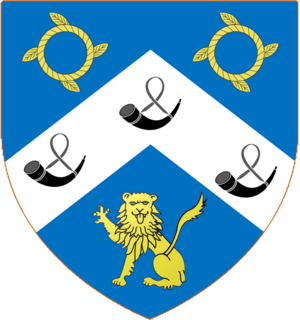William Jowitt, 1st Earl Jowitt facts for kids
Quick facts for kids
The Earl Jowitt
|
|
|---|---|

Jowitt in 1940
|
|
| Lord High Chancellor of Great Britain | |
| In office 27 July 1945 – 26 October 1951 |
|
| Prime Minister | Clement Attlee |
| Preceded by | The Viscount Simon |
| Succeeded by | The Lord Simonds |
| Personal details | |
| Born | 15 April 1885 Stevenage, Hertfordshire, England |
| Died | 16 August 1957 (aged 72) Bury St Edmunds, Suffolk, England |
| Political party | |
| Spouse |
Lesley McIntyre
(m. 1913) |
| Alma mater | New College, Oxford |

William Allen Jowitt, 1st Earl Jowitt (born April 15, 1885 – died August 16, 1957) was an important British lawyer and politician. He was a member of the Liberal Party, then the National Labour group, and finally the Labour Party.
He is best known for serving as Lord Chancellor, a very senior legal role, under Prime Minister Clement Attlee. He held this position from 1945 to 1951.
Contents
Early Life and School Days
William Jowitt was born in Stevenage, a town in Hertfordshire, England. His father, Reverend William Jowitt, was the local church leader.
When he was nine years old, William went to a special school called Northaw Place. There, he met Clement Attlee, who would later become a Prime Minister. They became good friends.
After Northaw, Jowitt attended Marlborough College. He then went on to study law at New College, Oxford University. He became a qualified lawyer in 1909.
Becoming a Lawyer and Politician (1922–1931)
Jowitt started his legal career in London. He quickly became known as a very skilled lawyer. He was calm and charming, which was different from other lawyers who often tried to intimidate witnesses.
In 1922, he became a King's Counsel, a special title for experienced lawyers. The very next day, he was elected as a Member of Parliament (MP) for The Hartlepools. He was part of the Liberal Party at this time.
He continued to work as a lawyer while serving as an MP. In 1929, he was elected MP for Preston. The new Prime Minister, Ramsay MacDonald, who was from the Labour Party, offered Jowitt a big job: attorney general.
Jowitt agreed to take the job, but he had to switch parties and become a Labour MP. He was re-elected in Preston as a Labour candidate. As Attorney General, he helped write new laws for the government. He also sometimes took part in important court cases, showing his sharp legal mind.
Changing Political Sides (1931–1939)
In 1931, the Labour government faced a big financial crisis. The government split, and Jowitt decided to support Prime Minister MacDonald, who formed a new National Government with other parties.
Because he joined this new government, Jowitt was removed from the Labour Party. He was made a Privy Councillor, which is a high honor. However, he lost his MP seat in the 1931 election. He stepped down as Attorney General in 1932 and went back to being a lawyer.
Jowitt missed being part of the Labour Party. Even though he was still expelled, he started campaigning for Labour again in 1935. He was finally allowed back into the Labour Party in 1936.
He became a strong critic of the government's policy of appeasement, which meant trying to avoid war by giving in to aggressive countries. Jowitt believed Britain needed to prepare for war and called for more weapons production. In 1939, he was elected as an MP for Ashton-under-Lyne.
Working with Winston Churchill (1940–1945)
When World War II began, Winston Churchill formed a special government that included leaders from different parties. In 1940, Churchill appointed Jowitt as Solicitor General. In this role, Jowitt gave legal advice to the government during the war.
Later, he was put in charge of planning for how Britain would rebuild after the war. He also held other important government jobs, like Paymaster General. In 1944, he became the first Minister of National Insurance, leading a new government department.
When the war ended in Europe in May 1945, the Labour Party left Churchill's government. Jowitt resigned from his government roles. He was re-elected as an MP in the general election that July.
Becoming Lord Chancellor (1945–1951)
In 1945, the Labour Party won a huge election victory and formed its first majority government. Prime Minister Clement Attlee, Jowitt's old school friend, chose him to be the Lord Chancellor. This is one of the highest legal positions in the UK. The Lord Chancellor is in charge of the justice system and also leads debates in the House of Lords.
One of Jowitt's first big tasks was to help create the London Charter. This document set the rules for the Nuremberg Trials, where Nazi war criminals were put on trial after World War II.
He also helped pass the United Nations Act 1946, which explains how the UK works with the United Nations. In 1945, he was given the title Baron Jowitt and became a member of the House of Lords.
As Lord Chancellor, Jowitt made important changes to the legal system. He tried to make sure that judges were chosen based on their skills and fairness, not their social background or political connections. This was a big step towards a fairer justice system.
Later Political Life
After the Labour Party lost the 1951 election, Jowitt became the leader of the Labour members in the House of Lords. He was given higher titles by Prime Minister Attlee. In 1947, he became Viscount Jowitt, and in 1952, he was made Earl Jowitt.
As a senior figure, Jowitt worked to keep the Labour members in the House of Lords united. He also spoke out against human rights abuses, for example, during the Mau Mau Uprising in Kenya. He retired from his leadership role in the House of Lords in 1955, at the age of 70.
Family
William Jowitt married Lesley McIntyre in 1913. He passed away in August 1957, when he was 72 years old. He did not have any sons, so his special titles (Baron, Viscount, and Earl) ended when he died.
Publications
Jowitt wrote two books about spies and also put together a very important legal dictionary. This dictionary was published after he died and is still used today by lawyers. It is called Jowitt's Dictionary of English Law.
- The Strange Case of Alger Hiss (1953)
- Some Were Spies (1954)
- Dictionary of English Law (1959)

